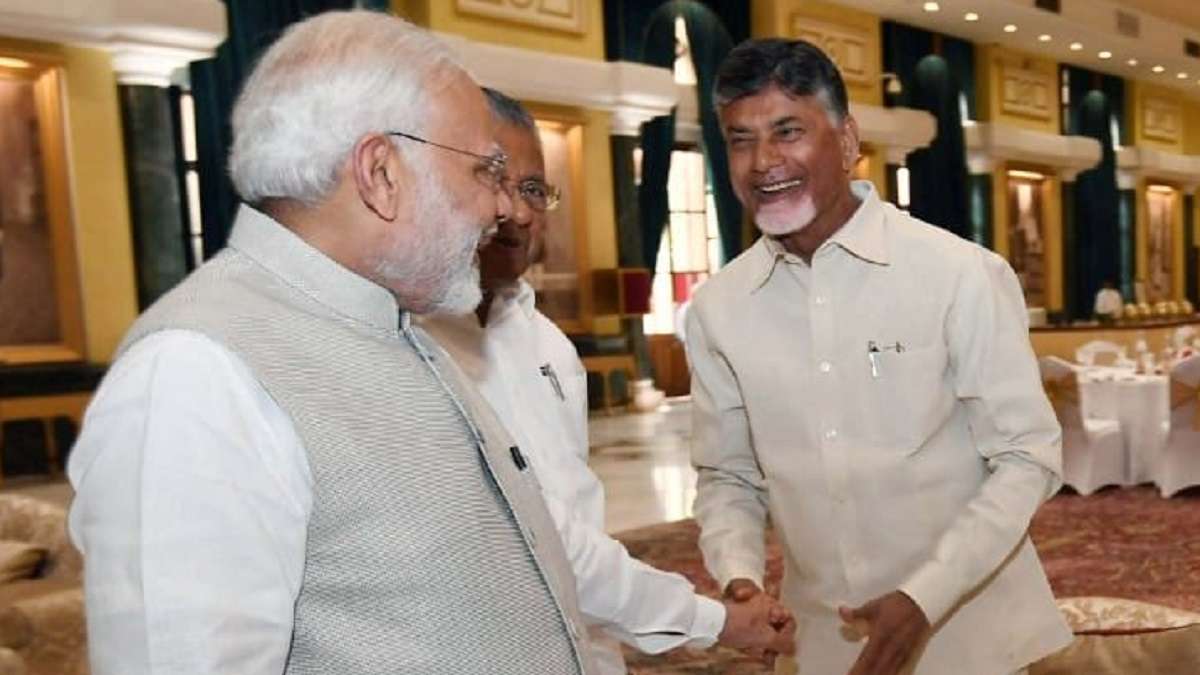In recent months, Andhra Pradesh Chief Minister Nara Chandrababu Naidu has shown a perceptible transformation in his political demeanour and priorities. Known for his past as a decisive and often high-handed leader, Naidu appears to have shed the aura of arrogance that once defined his tenure. His renewed focus on state development and a pragmatic approach to political alliances signal a leader evolving with the times.
The shift in Naidu’s attitude was on full display during two significant events attended by Prime Minister Narendra Modi and Union Home Minister Amit Shah. Naidu not only praised their leadership but went a step further, lauding Modi as a global leader whose stature transcends India. His words seemed genuine, acknowledging Modi’s role in propelling India to the forefront of global politics alongside powers like the US, China, and Russia.
This transformation is not just rhetoric. Naidu’s newfound humility reflects a lesson learned from past missteps. Decisions like abruptly exiting the NDA before the 2019 elections or allying with Congress—once a bitter rival—were seen as hasty and politically costly. Today, Naidu appears more deliberate, taking a collaborative approach to politics.
One of Naidu’s commendable traits is his ability to trust and empower bureaucrats. Unlike many leaders who rely solely on their instincts, Naidu values expert opinions, creating a governance style that blends political vision with administrative expertise. This collaborative model is a departure from the overconfidence that often derails politicians, making his approach a standout feature of his leadership.
Having observed Naidu over the past three decades, one can see his growth as a leader. In his early years, he was a “kingmaker” in national politics, riding the wave of Telugu Desam Party’s (TDP) prominence under its founder, N.T. Rama Rao. However, political miscalculations in recent years cost him dearly, pushing him to introspect and recalibrate.

Today, Naidu seems intent on aligning his political ambitions with the state’s broader interests. His acknowledgment of the economic and military strides India has made under Modi’s leadership suggests a willingness to work alongside the BJP for mutual benefit. This shift has come at a crucial juncture, as Andhra Pradesh grapples with significant debt and the aftereffects of poor governance under the YSR Congress Party (YSRCP).
The re-emergence of a TDP-BJP alliance, facilitated by Jana Sena leader Pawan Kalyan, has created a political force to reckon with. This coalition swept the 2025 general elections, offering a fresh start for Andhra Pradesh. Naidu’s ability to adapt and collaborate played a pivotal role in this victory, marking a turning point in the state’s political landscape.
Naidu’s vision for Andhra Pradesh’s future is ambitious yet grounded. His focus extends beyond IT—a sector he helped nurture during his earlier tenure—to include manufacturing, heavy engineering, and agro-based industries. With the state’s abundant resources, including fertile land, a long coastline, and a rich industrial base, Naidu is well-positioned to turn Andhra Pradesh into an economic powerhouse.
One example of his proactive governance is the announcement that the Centre has reconsidered its decision to privatize the Vizag Steel Plant. Instead, it plans to allocate funds to revive it—a move that resonates with the people and reflects Naidu’s ability to negotiate effectively with the central government.
Chandrababu Naidu’s evolution from a leader with a towering ego to a pragmatic statesman is a testament to his resilience and adaptability. As Andhra Pradesh pursues progress, his ability to prioritize the state’s interests over personal ambition will be crucial. His renewed focus on collaboration and development has the potential to position Andhra Pradesh as a model state for others to emulate. However, caution is advised. Naidu should avoid yielding to demands from some followers to elevate his son, who is currently a minister in his cabinet, to the position of deputy. This could be seen as following the precedent set by Tamil Nadu’s ruling DMK, where Chief Minister M.K. Stalin appointed his son as his deputy—a move criticized by many as promoting dynastic politics. With the BJP’s strong stance against political dynasties, it would be wiser for Naidu to focus on allowing his son, Lokesh, to mature into an independent and widely accepted leader based on his own merit rather than his lineage.
In the end, Naidu’s journey is one of redemption and reinvention—a leader who has learned from his past and is now poised to guide his state toward a brighter future.






